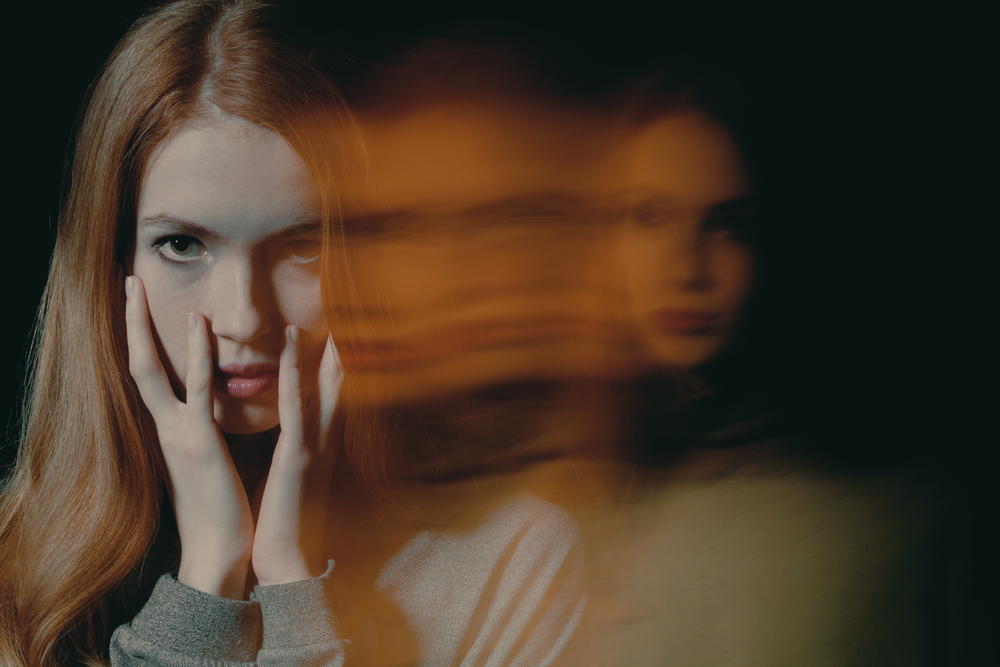Is alcohol a hallucinogen? In short, no. But, alcohol is a drug. Psychoactive drugs like alcohol do affect the brain similarly to how hallucinogens do, changing how certain sensations are perceived and impacting motor function. Some people combine alcohol and hallucinogens for a more intense “buzz.” This is extremely dangerous and should be avoided at all costs. Keep reading to learn more about substance use disorder for both alcohol and hallucinogen.
Are you or a loved one struggling with alcohol addiction? Olympus Recovery can help. We treat clients who are suffering from substance use disorders and co-occurring conditions. We recognize the needs and experiences of each individual client, and our programs are designed with that in mind. Learn more about our programs here.

How Does Alcohol Affect the Brain?
Alcohol impacts brain function much more severely than most people realize. Several studies show a link between excessive alcohol use and damaged brain function, leading to mental health conditions like:
- Dementia
- Learning deficits
- Memory problems
- Mental health disorders
- Other forms of cognitive damage
When excessive alcohol use continues for a prolonged period, the brain can suffer permanent impairment. The good news is, with treatment, you can reverse the damage of drinking alcohol and start to heal your brain.
When one drinks alcohol in large amounts over a long period, it can produce deadly effects as the drug impacts:
- Several regions of the brain
- The Central Nervous System, including the brain, nerves, and spinal cord
What’s more, alcohol’s depressive properties have the ability to suppress breathing and lower body temperature to dangerous and even life-threatening levels.
If you don’t consider yourself a ‘binge drinker,’ you may be breathing a sigh of relief right now. But, unfortunately, that sigh of relief will be short-lived. Even short-term alcohol use impacts the parts of the brain that control cognitive and motor functions and causes them to slow down. Anybody who has drank alcohol before knows how alcohol impairs memory, judgment, coordination, and sleep. Alcohol use disorder treatment is highly recommended if you think you or your loved one is going overboard.
Stages of alcohol intoxication as they relate to brain function
Subliminal intoxication
The first stage of intoxication happens when your BAC reaches between 0.01-0.05. Although you may not appear “drunk,” your reaction time, behavior, and judgment are all beginning to be altered. It takes the average person only one drink to enter this initial stage of intoxication.
Euphoria
Once you’ve had your first drink, your brain begins to release more dopamine, the chemical that’s linked to pleasure [2]. This explains why people love the initial buzz that comes with drinking. Although you will likely feel happy, calm, and confident, your reasoning and memory are becoming more impaired as you continue to drink.
Excitement
Once your BAC reaches between 0.99 to 0.25, you are legally intoxicated, and the brain’s occipital lobe, temporal lobe, and frontal lobe are all being impacted. The more you drink, the more side effects you’ll see from each lobe, including blurred vision, impaired judgment, and slurred speech.
Confusion
During this level of intoxication, you’ve become disoriented as the cerebellum, the part of the brain associated with coordination, is affected. This is why drunk people stumble. This is also the stage where blackouts happen as the hippocampus, the part of the brain where new memories are made, is not performing optimally.
Stupor
Once the BAC reaches 0.25, concerning signs of alcohol poisoning crop up as all mental, physical, and sensory functions become severely impaired. In this stage, the risk of passing out, suffocating, and being injured skyrockets.
Coma
You are at risk of entering a coma during this stage when the BAC gets to 0.35 due to the compromised breathing and circulation, reflexes, and responses that the alcohol has caused. During this stage, you are at risk of dying.
Death
If your BAC bypasses 0.45, you risk death by alcohol poisoning or the brain failing to control your body’s vital functions.

How Do Hallucinogens Affect the Brain?
Similar to alcohol, psychedelic drug or hallucinogen impacts the brain in concerning and potentially life-threatening ways, including by:
- Interfering with activity in the prefrontal cortex — This part of the brain is responsible for helping us process complex thoughts and information, set and accomplish goals, stay focused, manage emotional stress, and plan for the future. When hallucinogens such as Lysergic Acid Diethylamide and magic mushrooms interfere with this activity, people have a hard time focusing, processing information, and paying attention. For example, instead of perceiving a wall as a blank white wall, someone on hallucinogens may perceive it as a hot pink wall that’s flashing blue. As the cognition levels drop, people stay in this hallucinatory state until the drug wears off.
- Interfering with the brain’s neural circuits that use serotonin — Groups of neurons working together to carry out brain functions are referred to as neural circuits [3]. Hallucinogens such as psilocybin mushrooms interfere with the neural circuits that use serotonin, which start to impact all functions that rely on serotonin. As this happens, the user’s mood, appetite, body temperature, and sleep patterns all change. They may also experience difficulty controlling their muscle movements and their sensory perception declines, making them experience:
- Nightmares
- Hallucinations
- Delusions
- Mental health issues
- Visual disturbances
- Glutamate level disruption — Glutamate is a brain chemical that works to regulate a wide range of functions, including learning, emotions, response, and pain perception. This disruption causes people to have abnormal responses to their environments, most commonly in the form of dissociative hallucinogens effects. For example, feeling as if bugs are crawling on their skin and even hallucinating the bugs crawling on them, or feeling as if they’re floating.
Long term effects of hallucinogenic drugs on the brain include:
- Persistent psychosis — which causes paranoia, mood swings, disorganized thinking, and visual disturbances [4]
- Hallucinogen Persisting Perception Disorder (HPPD)
What Can Happen if You Mix Alcohol and Hallucinogens?

The effects of hallucinogens are unpredictable. Remember, alcohol is a drug, so it can also be hard to predict what will happen each time someone drinks an excessive amount.
So, it’s impossible to predict exactly how each hallucinogen will react with alcohol. But, we do know one thing, the combination is high-risk and can be deadly. Symptoms of mixing alcohol with hallucinogens include:
- Nausea
- Vomiting
- Feeling faint
- Increased heart rate
- Lost consciousness
- Seizures
- Dangerously high body temperature
- Increased chance of suffering a “bad trip,” in which scary hallucinations and extreme depression happen
Treatment for Addiction to Alcohol and Hallucinogens
Treatment for addiction to alcohol and hallucinogens is available, and recovery is possible. First, you must find a licensed detox treatment facility like Olympus Recovery that’s equipped with a team of compassionate, experienced, and skillful medical professionals that will help you manage your withdrawal symptoms easily.
Olympus Recovery also offers an Intensive Outpatient Program and Partial Hospitalization Program that teaches clients to learn new and healthy coping skills to help them re-enter society as productive and active members. Olympus helps people transition back to everyday life by creating an environment where change is possible.

Olympus Recovery Can Help
Struggling with alcohol abuse, hallucinogen drug abuse or both? Or are you worried that a loved one is? We’re here to help. At our Delray Beach Florida rehab, we recognize the needs and experiences of each individual client, and our and our program was designed with that in mind. Our experienced clinical staff was expertly hand-picked and includes Master’s level clinicians who treat our clients with the utmost respect. Contact us today to learn more.


